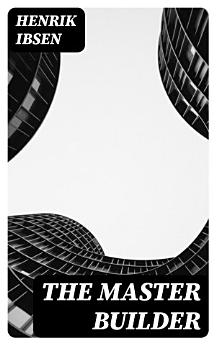The Master Builder
Henrik Ibsen
sep 2022. · DigiCat
E-knjiga
71
Broj stranica
family_home
Prihvatljiva
info
reportOcjene i recenzije nisu potvrđene Saznajte više
O ovoj e-knjizi
Henrik Ibsen's "The Master Builder" delves into the complex interplay between ambition, artistic vision, and personal relationships. Written in the late 19th century, this play showcases Ibsen's hallmark style of realism, characterized by its psychological depth and intricate character development. The narrative unfolds around Halvard Solness, a master builder tormented by his past achievements and future aspirations, embodying the existential dilemmas of modernity. The symbolic architecture within the play serves as a metaphor for Solness's aspirations and the precarious nature of success, offering a poignant examination of the human condition. Henrik Ibsen, often regarded as the father of modern drama, drew inspiration from his own life experiences as a playwright and social critic. His background in a struggling merchant family and his struggles with societal expectations profoundly influenced his exploration of individualism and the constraints imposed by society. Ibsen's encounter with artistic and economic challenges in his early life permeates the character of Solness, revealing the tension between creative ambition and personal vulnerability. "The Master Builder" is a seminal work that invites readers to reflect on the nature of success and the costs incurred in its pursuit. Ibsen's masterful storytelling and rich thematic layers make this play an essential read for those interested in literature that probes the complexities of human ambition. The layered characters and philosophical inquiries will resonate deeply with modern audiences, making it a timeless exploration of the creative spirit.
O autoru
Henrik Ibsen, born on March 20, 1828, in Skien, Norway, is considered one of the foremost playwrights of the late 19th century. With a career spanning almost 50 years, he transformed the European stage tradition with his realistic prose dramas. Ibsen studied at the Norwegian Theatre School and began writing plays that challenged the moral values of his time. His innovative approach involved complex characters and examined the realities of society, earning him the nickname 'the father of modern drama.' One of his significant works, 'The Master Builder' (1892), encapsulates Ibsen's symbolism and psychological depth. The narrative revolves around an architect, grappling with the intricacies of ambition, and reflects themes prevalent throughout Ibsen's literary corpus such as individual struggle and the pursuit of truth. Ibsen's style indicates a departure from romanticism as he veers towards a more critical and realistic depiction of life. His influence extends to the works of prominent playwrights, including George Bernard Shaw and Arthur Miller. Henrik Ibsen's contributions to literature were revolutionary, with an enduring legacy that persists in contemporary theater and drama studies.
Ocijenite ovu e-knjigu
Recite nam šta mislite.
Informacije o čitanju
Pametni telefoni i tableti
Instalirajte aplikaciju Google Play Knjige za Android i iPad/iPhone uređaje. Aplikacija se automatski sinhronizira s vašim računom i omogućava vam čitanje na mreži ili van nje gdje god da se nalazite.
Laptopi i računari
Audio knjige koje su kupljene na Google Playu možete slušati pomoću web preglednika na vašem računaru.
Elektronički čitači i ostali uređaji
Da čitate na e-ink uređajima kao što su Kobo e-čitači, morat ćete preuzeti fajl i prenijeti ga na uređaj. Pratite detaljne upute Centra za pomoć da prenesete fajlove na podržane e-čitače.







